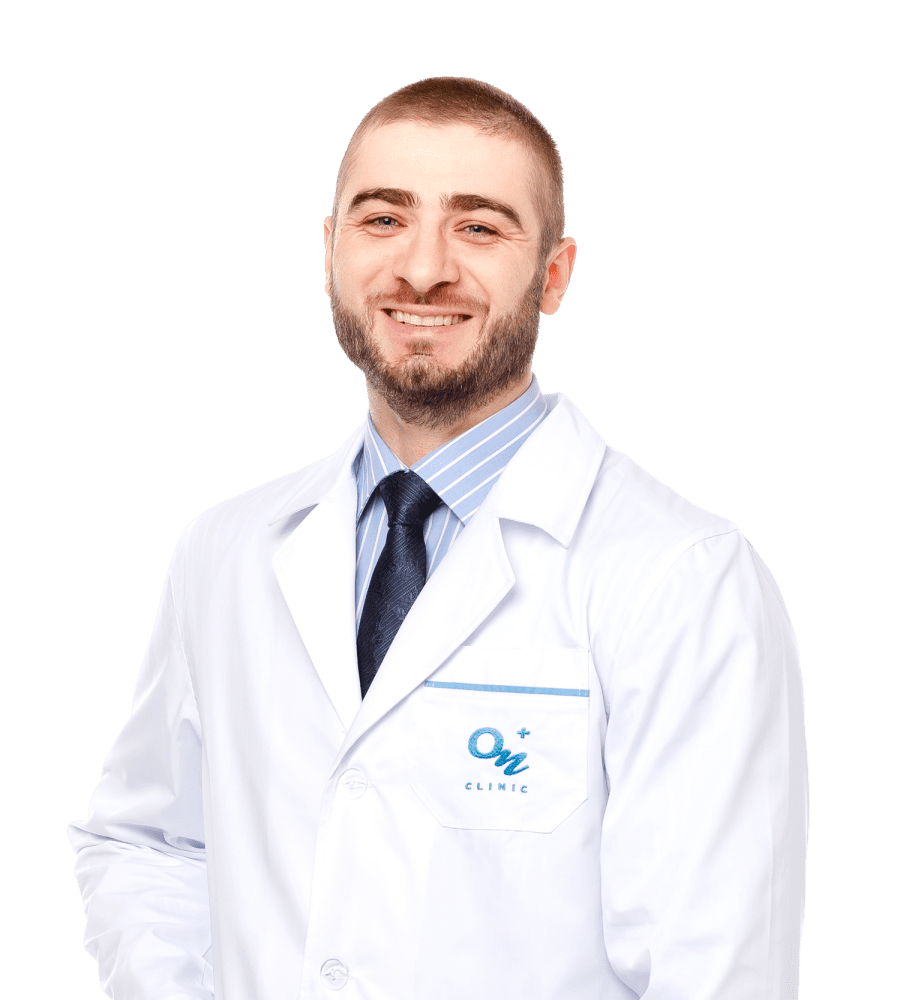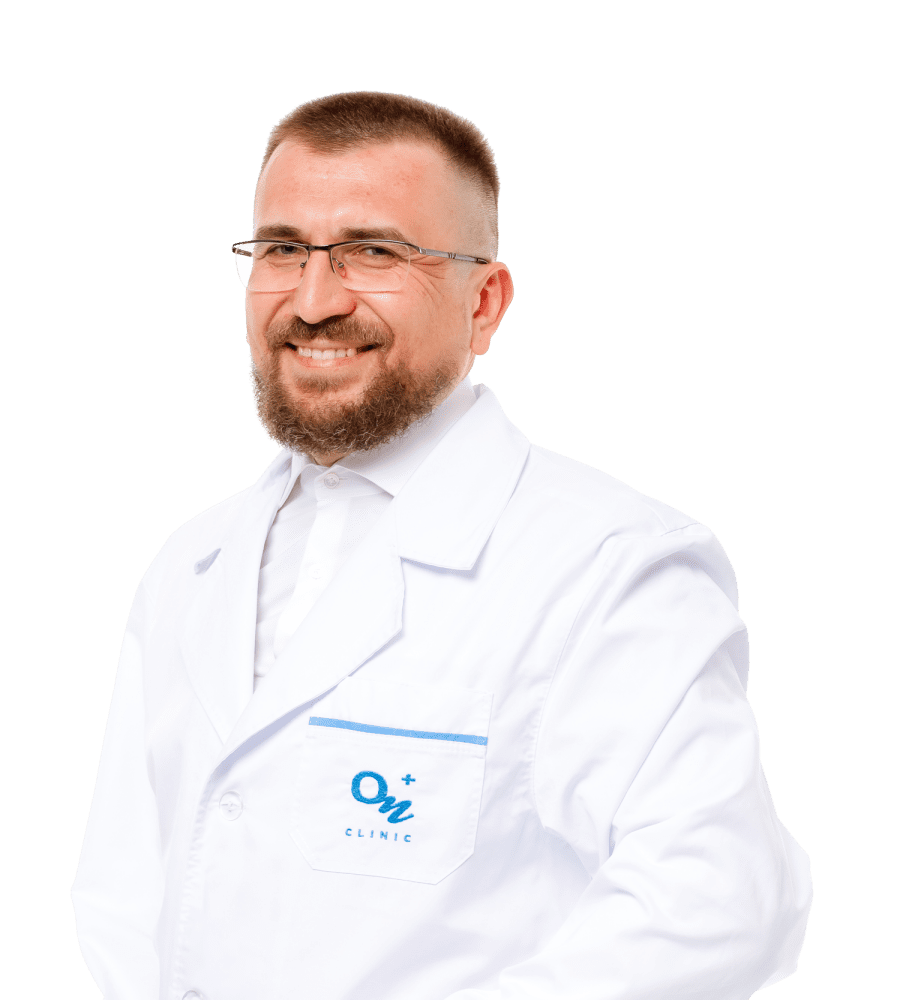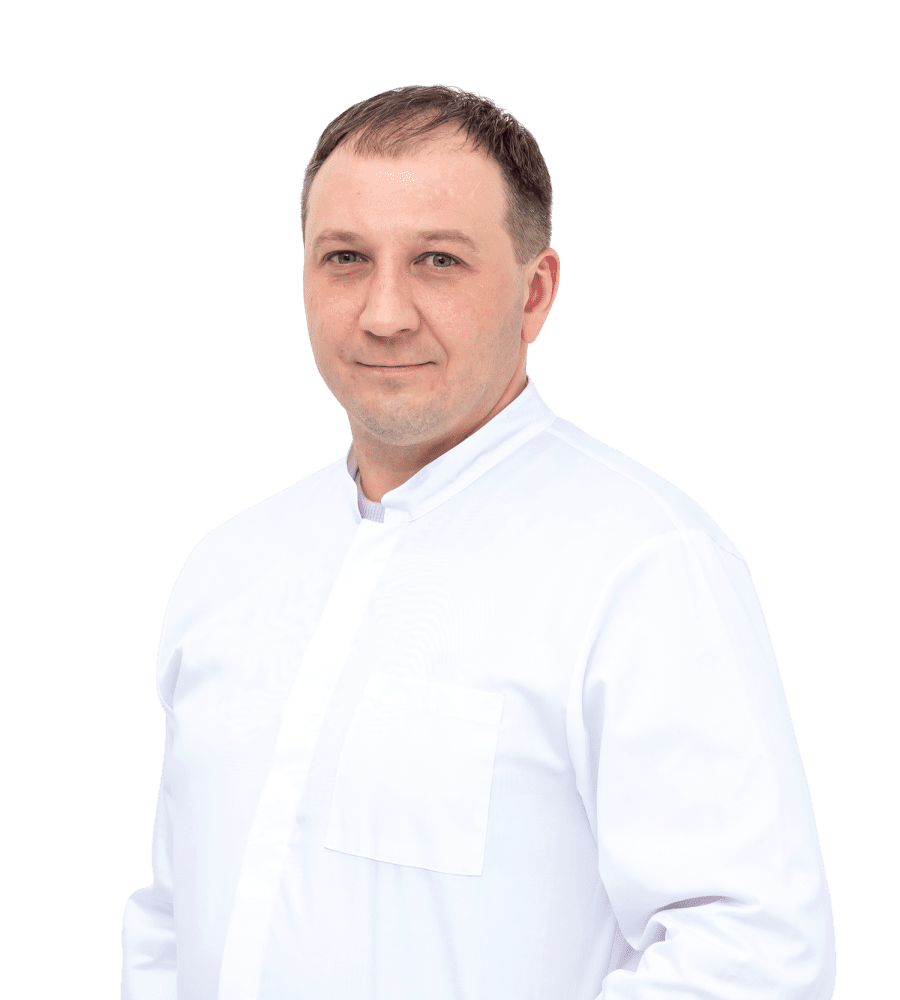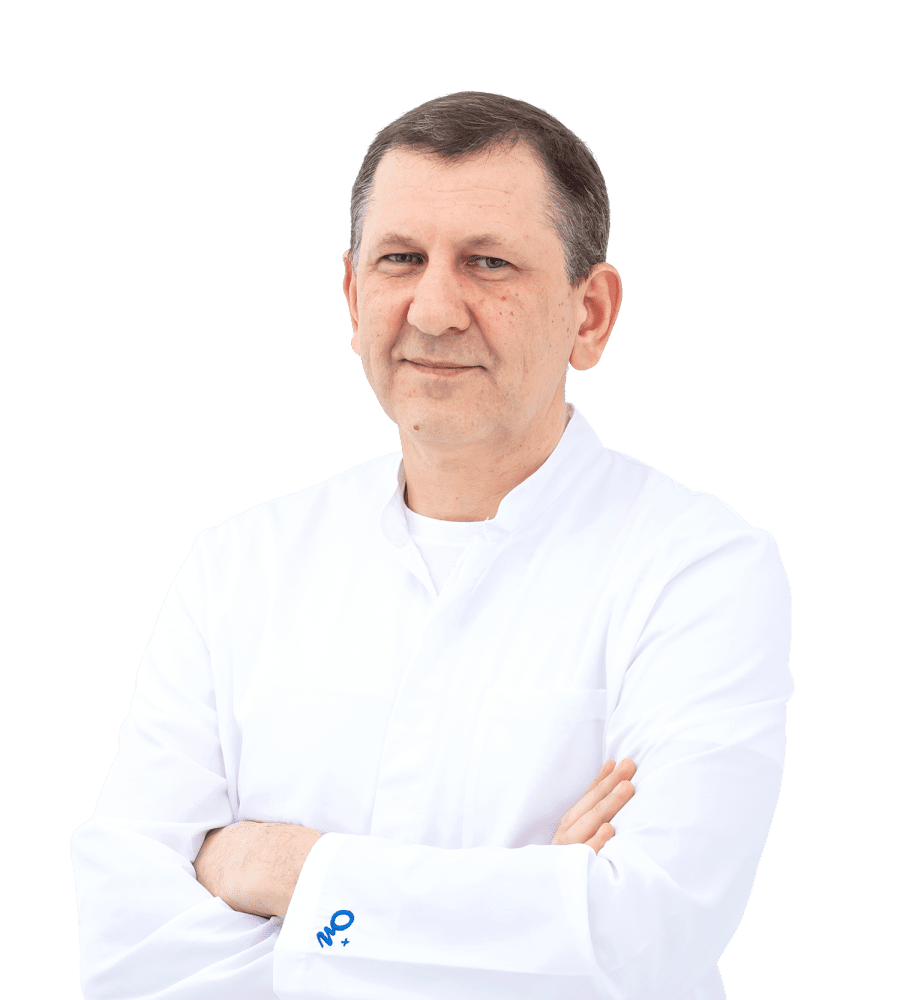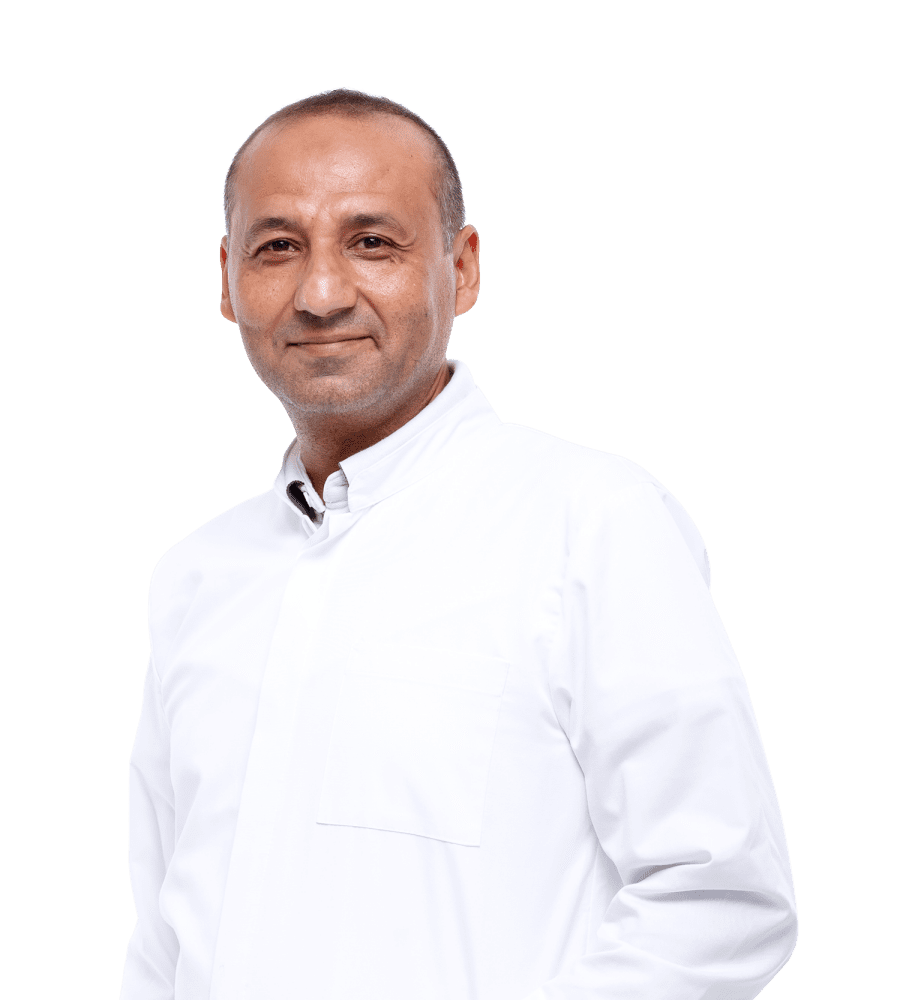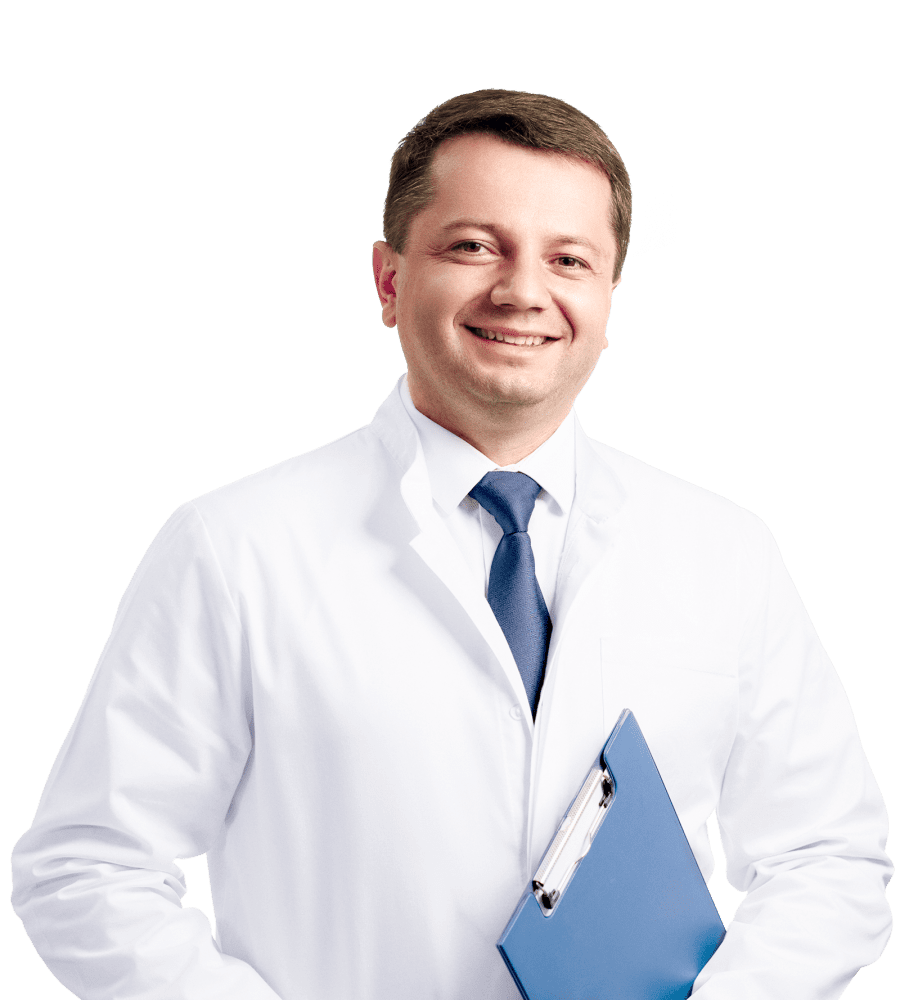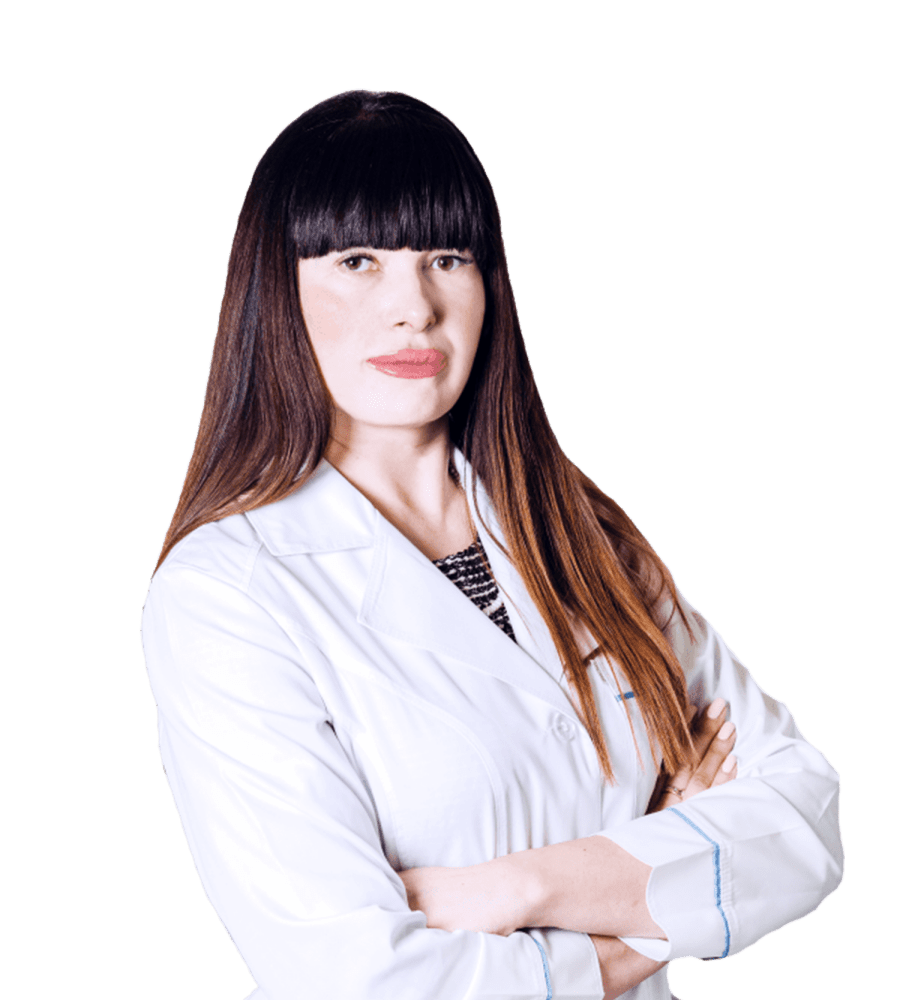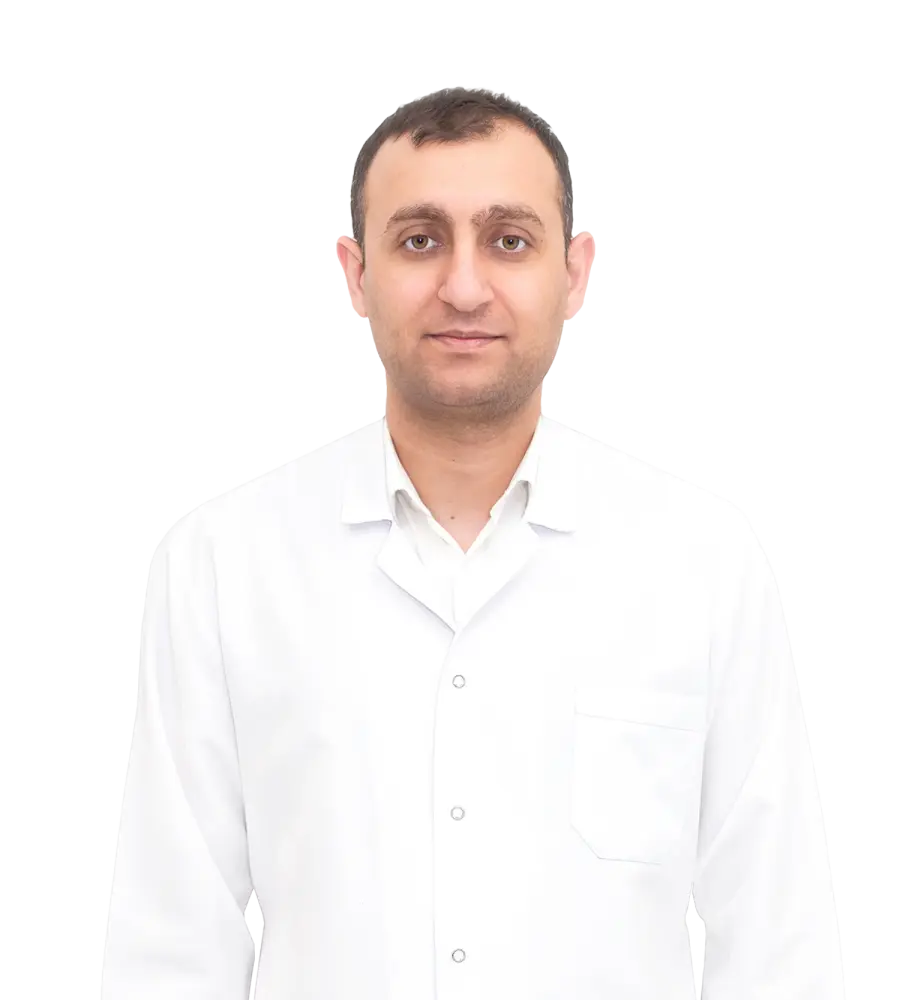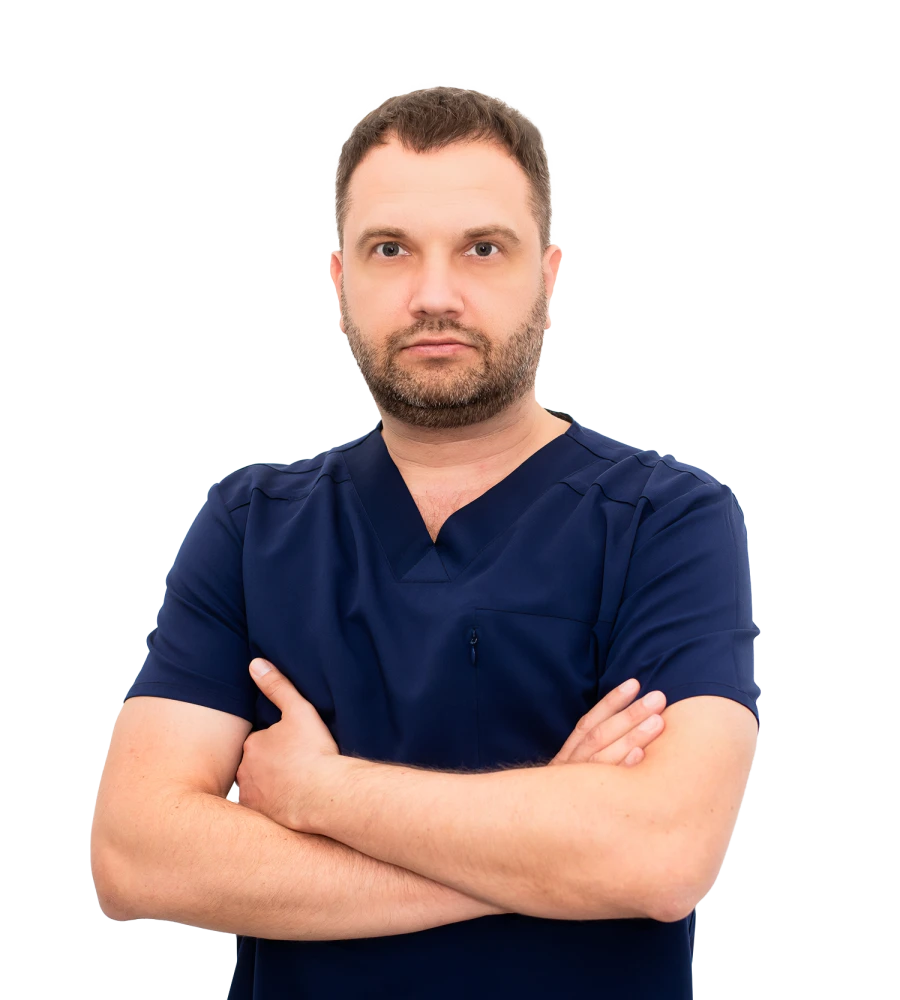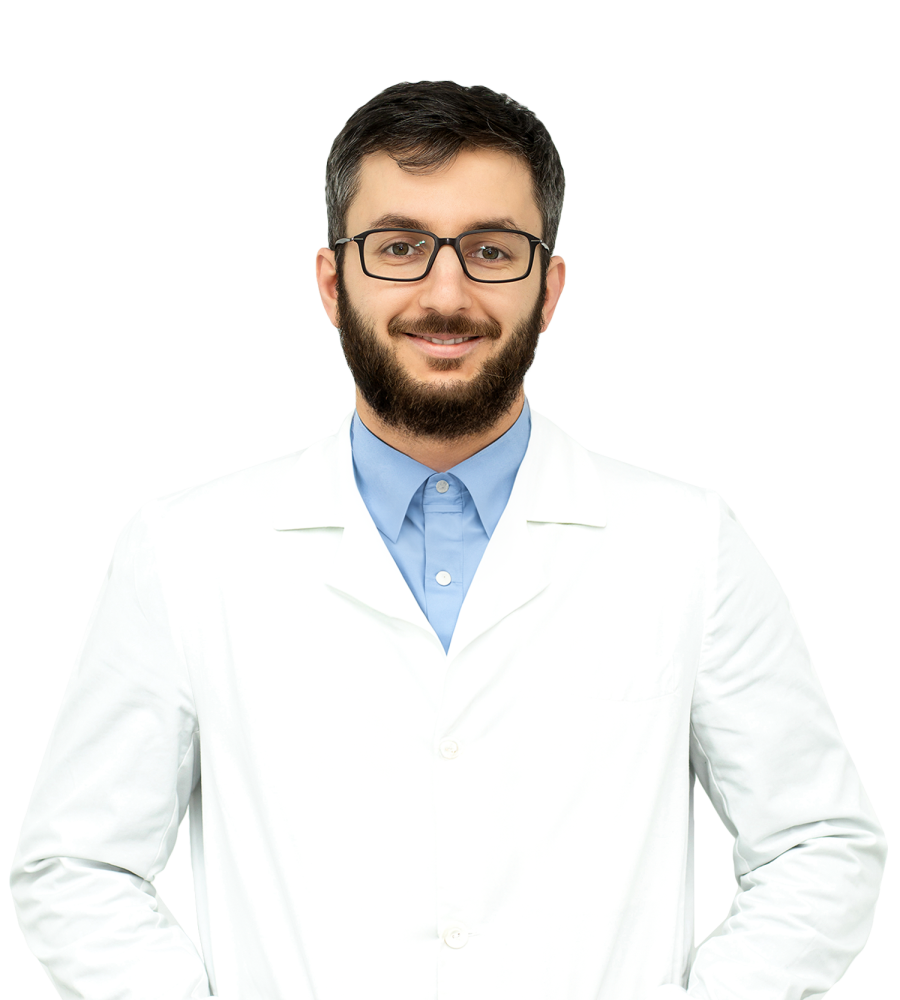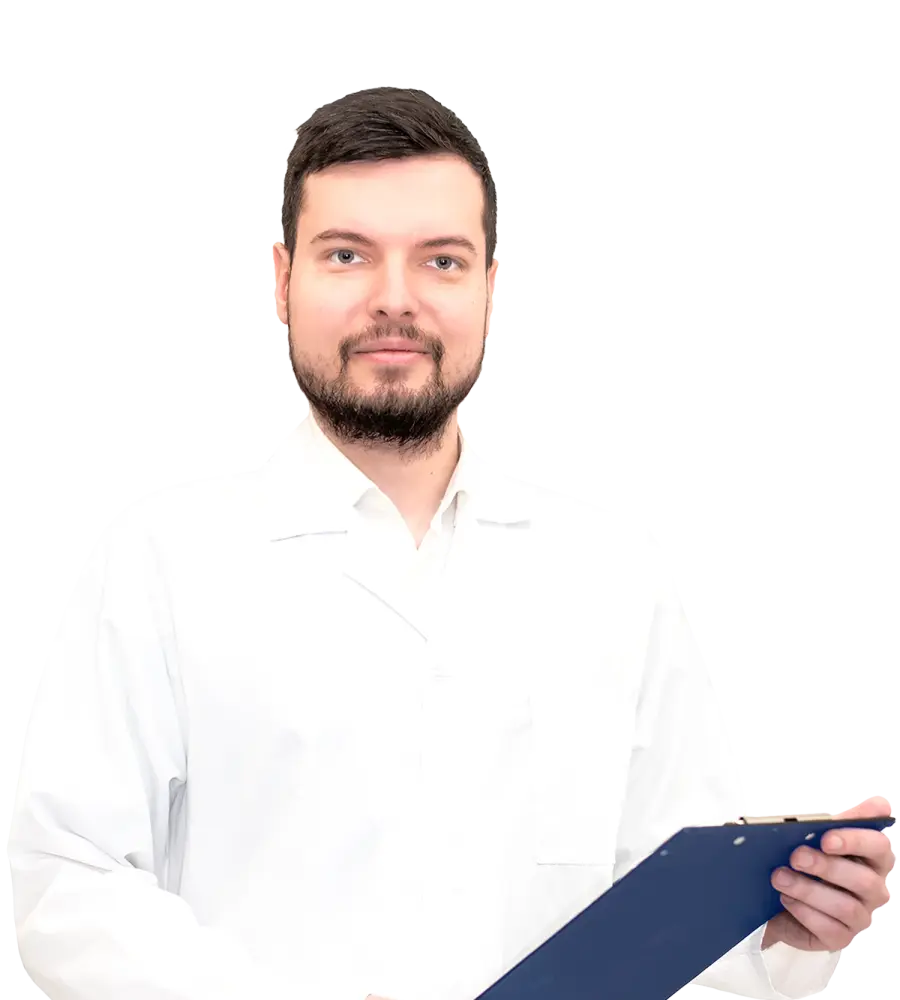Surgical treatment of thyroid gland in Kharkiv
Thyroid gland is an organ of the endocrine system that produces the hormones thyroxine and triiodothyronine, which regulate the metabolic rate in the body and maintain the normal functioning of all organs and systems. The thyroid gland is located in the lower part of the front of the neck and weighs about 15-20 g.
Thyroid hormones regulate:
- digestive processes;
- functioning of the central nervous system;
- metabolism (mineral, carbohydrate, fat);
- growth of organ tissues;
- heart rate;
- reproductive function.
Hence, malfunction of the thyroid gland leads to negative consequences for the whole body. Therefore, it is important to be attentive to your well-being and to undergo regular medical examinations in order to detect pathology in time and start treatment.
How to understand if there are thyroid gland disorders?
The main symptoms of thyroid disorders include:
- constant fatigue;
- appearance of allergic reactions;
- drowsiness, apathy;
- memory impairment;
- difficulty concentrating;
- loop of thermal control (a person often freezes or, on the contrary, a fever develops);
- irregular, scanty menstruation;
- sharp decrease or gain in weight;
- feeling of a lump in the throat, difficulty swallowing;
- enlargement of the thyroid gland more than III degree (when it is plain to see);
- arrhythmia with signs of cardiovascular insufficiency.
Autoimmune diseases of thyroid gland, when the human immune system destroys the organ cells, may be asymptomatic in the initial stages. As the organ is destroyed, symptoms appear and worsen. Trembling in the limbs, hair loss, a change in the voice timbre and depression can be added to the listed signs.
Symptoms of toxic goiter are enlarged thyroid gland, increased heart rate (tachycardia), and bulging (endocrine ophthalmopathy). Another name for the illness is Basedow’s disease. It develops due to the production of antibodies to the gland by the human body, stimulating its growth and increased production of hormones (hyperthyroidism of the thyroid gland). Specific symptoms of hyperthyroidism include:
- excessive sweating;
- weight loss secondary to increased appetite;
- menstrual irregularities;
- infertility;
- sudden mood swings;
- nervousness, irritability.
Untreated thyrotoxic goiter leads to the development of severe complications. A sharp increase in the level of thyroid hormones in the blood provokes a thyrotoxic crisis - a life-threatening condition when the patient requires urgent medical attention.
Decreased production of thyroid hormones (hypothyroidism) causes the thyroid gland to shrink and slows down the metabolic rate. Symptoms of underactive thyroid gland include unnecessary weight gain, pallor of the skin, swelling of the eyelids and hands, drowsiness, and low blood pressure.
If you have alarming symptoms, you need to contact endocrinologist and diagnose the thyroid gland. The doctor will first examine the neck and feel the thyroid gland to determine its size and rule out the piles. Then you will need to do tests for hormones (TSH, T4, T3) for a more accurate assessment of the organ’s functioning, as well as do ultrasound of thyroid gland.
The thyroid gland disorders shall be treated immediately, before they cause damage to health. Late treatment of hyperthyroidism in women after 45 years leads to decrease in bone density and increased risk of fractures.
Prevention of hyperthyroidism
An overactive thyroid gland (hyperthyroidism) is one of the most common endocrine disorders. But in most cases, the pathology development can be prevented if preventive measures are followed:
- get the required amount of iodine from food. The daily intake of a microelement for adults is 150 mcg. During pregnancy and lactation, the need for iodine increases by about 100 mcg, so it is advisable to discuss the intake of iodine-containing preparations with your doctor. It is recommended to replace ordinary table salt with iodized salt, more often use sea fish and seafood, at least seaweed;
- give up bad habits. Smoking and alcohol provoke the appearance of thyroid piles;
- avoid stress.
Surgical treatments for thyroid gland
Organ removal surgery (thyroidectomy) is a surgical method for treating hyperthyroidism with a large goiter and thyroid cancer. It is indicated when conservative treatment and therapy with radioactive iodine do not give the expected effect.
Thyroidectomy is upfront surgery performed through a small incision in the skin on the front of the neck. It can be complete and partial. Partial removal of the thyroid gland is indicated for toxic goiter with areas of healthy tissue. Then only pathological piles are removed in order to preserve the hormones production by the gland. If, with a toxic goiter, the entire tissue of the thyroid gland is affected, and it no longer performs its function, the entire organ is completely removed during a surgical operation.
If you need surgical treatment of the thyroid gland, make appointment with a surgeon at the medical center “ON Clinic Kharkiv”. Call the specified phone number or fill out the online application form on the website.
| Название | Цена |
| 6000 uah | |
| 8500 uah | |
| 5000 uah | |
| 600 uah | |
| 850 uah | |
| 5500 uah | |
| 4500 uah | |
| 280 uah | |
| 2075 uah | |
| Consultation of an oncogynecologist | 700 uah |
| Consultation with a surgeon | 600 uah |
| Consultation with a surgeon-endocrinologist | 525 uah |
| Consultation with an oncosurgeon | 600 uah |
| Consultation with an operating obstetrician-gynecologist | 500 uah |
| Consultation with an operating surgeon | 500 uah |
| Consultation with an operating urologist | 550 uah |
| Endocrinology surgeon consultation | 600 uah |
| Home call to a surgeon | 1800 uah |
| ONLINE Consultation with a gynecological oncologist | 700 uah |
| ONLINE Consultation with a surgeon | 600 uah |
| ONLINE Consultation with an oncosurgeon | 600 uah |
| ONLINE Consultation with an surgeon-endocrinologist | 525 uah |
| ONLINE Thoracic Surgeon Consultation | 600 uah |
| Thoracic surgeon consultation | 500 uah |


